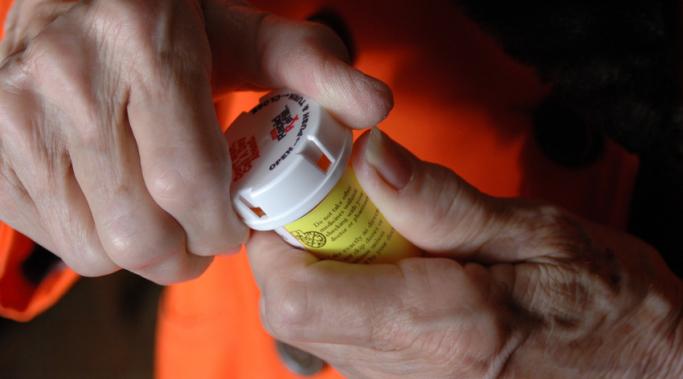It is an unfortunate reality that some people with bipolar disorder refuse help. And it is an unfortunate reality that this deleteriously affects those in their lives. And it is unfortunate that some people are tied to those that refuse help, such as in the case of a marriage or partnership. So the question is, if you are married to a person with bipolar who refuses to get help for their illness, should you leave them?
Bipolar Treatment – Breaking Bipolar
In psychiatric studies, generally response and remission are recorded for the effectiveness of medications. So, a certain percentage of people positively respond to medications (get somewhat better) and a smaller percentage of people go into remission (get mostly better) from medications. The definitions of “respond” and “remit” vary, but typically it’s a reduction in symptoms, as measured on a scale, to a specified degree.
In practice, this means that a medication can still be deemed “effective” even if it only moves you from a 10 to a 5 on a scale of depression.
Well, this isn’t good enough.
While it seems hard to believe, some people want others to stay mentally ill and, indeed, sometimes even individuals themselves, choosing to maintain mental unwellness. You have the obvious example of people refusing medication and thus becoming very sick but there are other forces as well that can encourage a person to stay acutely, mentally ill.
Bipolar disorder is a scary illness, but sometimes even scarier is the idea of treatment. Logically, going to the doctor, getting a diagnosis and getting help doesn’t sound scary, but if you’re the one faced with psychiatrists, personal, probing questions, destroying what you know and treatments that might make you feel worse before you feel better, you might find the concept daunting.
But what do you do if you’re a loved one of a person with bipolar (or another mental illness) who is refusing treatment?
When I speak to kids about my experience with bipolar disorder, really, I have a series of failures to explain. I tell them how treatment after treatment failed. I talk about drug failures, the failure of the vagus nerve stimulator and the failure of electroconvulsive therapy. I lot of my sentences have the word, “unfortunately,” in them.
And after one of my presentations last week, one person asked what I would say to someone who was going through a similar experience. I thought that was a very important question.
So here’s what I would say to someone who’s experiencing treatment failure.
I recently finished an 8-week mindfulness meditation course. I went into it not knowing why I was there, other than the fact that my doctor had recommended it. I went in not knowing what the outcome was supposed to be. When we were asked to write goals for the course, mine were blank. I had none. I really just wanted to see if there was any benefit to all this mindfulness meditation stuff.
Turns out, I believe that there is benefit in mindfulness meditation. And here’s some of what you might find in a course.
A reader recently contacted me and asked me about psychomotor agitation. Psychomotor agitation is actually a symptom of bipolar hypomania and bipolar mania (and depression) and yet few people know what this means. In fact, according to this study, it is poorly defined and measured even within the medical community. Psychomotor agitation is often translated into “restlessness,” which doesn’t seem overly descriptive to me.
So here’s my take on psychomotor agitation: how it feels and what we know about it.
Recently I have been taking a mindfulness meditation course. This is pretty amazing seeing as I’ve always felt my brain was not still enough to meditate – not to mention, I’m pretty sure I don’t believe in all this new age stuff (although, technically, meditation is very, very old age stuff).
But I went anyway because mindfulness meditation has been shown to be beneficial for all sorts of mental illnesses (not surprisingly, particularly anxiety) and I try to be open to anything that may help-plus, bonus, no side effects.
And one of the things I had heard is that when you meditate you need to not think. Your mind is supposed to go blank. You become absent of thought.
But this turns out to be false.
Today I tuned into a webcast on managing bipolar depression. I wasn’t sure what to expect although I was aware the webcast was designed for doctors so I knew the level of discourse would be high.
And I must say it was a great hour. Granted, I knew the vast majority of what was being presented but the nuggets of new items here and there definitely made it worthwhile.
What’s more is that this view on managing bipolar depression is evidence-based and they present the numbers behind what’s recommended. They make clear which studies are drug company-funded and which are not. It’s the kind of information that I wish every doctor knew.
And, if you have bipolar, especially bipolar depression, it’s the kind of information you should know too.
Two nights ago, I was privileged to attend the National Council’s Awards of Excellence dinner. This is a dinner during which we honor and hear the stories of those who won the awards. I was there because the Bipolar Babe won a Reintegration Award in mentorship, and believe me, no one deserves it more. Being a winner, the Bipolar Babe gets $10,000 for her charity.
But what you might notice about these awards is that they are a partnership between the National Council for Community Behavioral Healthcare (mental and addiction illnesses) and Eli Lilly and Company. Now, The National Council,
. . . advocates for policies that ensure that people who are ill can access comprehensive healthcare services. We also offer state-of-the-science education and practice improvement resources so that services are efficient and effective.
Whereas Eli Lilly is a drug company designed to make money.
But what I learned while I was at the awards is that the Eli Lilly folks had neither horns nor tails.


![MP900405644[1]](/sites/default/files/styles/blog_listing/public/uploads/2013/06/MP9004056441-1024x685.jpg?itok=sLTFbNTj)

![MP900390526[1]](/sites/default/files/styles/blog_listing/public/uploads/2013/05/MP9003905261.jpg?itok=8oVaR4Fn)

![MP900387479[1]](/sites/default/files/styles/blog_listing/public/uploads/2013/05/MP9003874791.jpg?itok=H3noVYZU)
![MC900438747[1]](/sites/default/files/styles/blog_listing/public/uploads/2013/04/MC9004387471.jpg?itok=emzSW1IQ)

